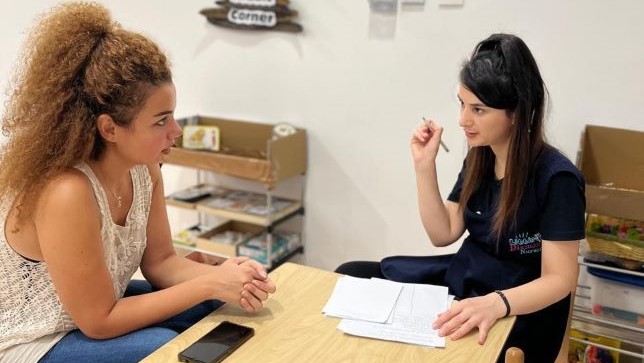Building Strong Parent-Teacher Relationships in Nursery School
- January 23, 2025
- LearningCenter

The bond between parents and teachers is one of the most crucial aspects of a child's development at nursery school. Children feel supported at home and at school when parents and educators collaborate. They develop and learn more effectively as a result. A solid parent-teacher relationship is essential to early children's success. Here are some strategies for creating a solid and fruitful collaboration.
Why Parent-Teacher Relationships Matter?
When home and school life are connected, children learn most effectively. The requirements of the kid are satisfied both at home and in the classroom when parents and teachers have a solid working relationship. Teachers and parents can better support holistic child development when they exchange knowledge.
1. Support for the Child
When parents and teachers communicate well, they can stay on the same page about the child’s strengths and areas where they need help. Parents can share important details about their child, like interests and habits. Teachers can tell parents how the child is doing at school. This helps both sides support the child in the best way possible. It also helps children feel secure when everyone is working together.
2. Emotional Well-being
A child's emotional well-being is also supported by a positive parent-teacher relationship. When kids see their parents and teachers working together, they feel more secure. It gives kids a sense of security and affection at home and at school. They become more confident and eager to study as a result of this encouragement.
3. Better Communication
When parents and teachers have a strong relationship, communication improves. Parents can ask questions or share concerns. Teachers can discuss the child’s progress or any issues that come up. This helps both sides understand each other and work together more effectively.
How to Build Strong Parent-Teacher Relationships
1. Open and Honest Communication
Honest and open communication is essential to a healthy partnership. Parents should receive updates from teachers regarding their child's academic progress. This covers the child's development as well as any difficulties. Important information, like as changes at home or health issues, should also be shared by parents. Being open and truthful enables both parties to provide the child with the best possible support.
2. Regular Updates
Parents should receive updates from teachers regularly. Emails, newsletters, or straightforward messaging could be used for this. Parents may stay up to speed on their child's progress and future events with the help of updates. Additionally, it enables them to rejoice in their child's development. Parents might feel more involved in their child's school life by sharing class photos or stories.
3. Parent Teacher Meetings
Parents teachers Meetings are an excellent opportunity to discuss the child's development face-to-face. Parents get the opportunity to voice their opinions and ask questions during these sessions. Teachers might discuss the child's strengths, difficulties, and ways that parents can support them at home. To help parents feel included in the educational process, it's critical to make these meetings accessible.
4. Be Approachable and Friendly
Teachers ought to be personable and amiable. The bond between parents and instructors is strengthened when parents feel at ease speaking with them. A simple welcome or a smile can make a big difference. Whether it's after school or during school functions, teachers should schedule time to talk with parents. Parents feel more at ease reaching out when necessary when there is a welcome and upbeat attitude.
5. Encourage Parental Involvement
It is important to encourage parents to participate in school-related activities. Events like volunteer opportunities, celebrations, and parent-teacher socials are frequently held at nursery schools. Parents can meet other families and the teachers at these occasions. Involving parents makes them feel more invested in their child's education. Additionally, it improves the bond between the home and the school.
6. Respect Each Other's Role
Both parents and teachers should respect each other’s role in the child’s life. Teachers are experts in education and child development. Parents know their child’s personality, interests, and needs. When both sides respect and value each other’s knowledge, it helps them work together more effectively. Teachers should listen to parents’ concerns, and parents should trust teachers’ experience in the classroom.
7. Offer Support and Guidance
It can occasionally be difficult for parents to understand how to help their children at home. Instructors can give guidance on learning-enhancing exercises or activities. This could be creating arts & crafts, reading aloud, or practising numbers. Parents feel more secure in their role when they are provided with resources and advice. It also improves the relationship between the home and the school.
8. Building Trust and Cooperation
Trust is at the heart of any good relationship. Both parents and teachers need to trust each other. Teachers should show that they care about the child’s well-being, while parents should trust that teachers have the child’s best interests at heart. When trust is built, both sides can work together easily and help the child grow and learn.
Conclusion
In nursery school, building strong parent-teacher relationships is crucial for a child’s development. When parents and teachers work together, children feel supported and ready to learn. Open communication, regular updates, parent involvement, and mutual respect are all key to a successful partnership. When parents and teachers collaborate, children feel safe, loved, and confident. This makes them more eager to learn and grow in school. In the end, the strong connection between home and school helps children reach their full potential.



